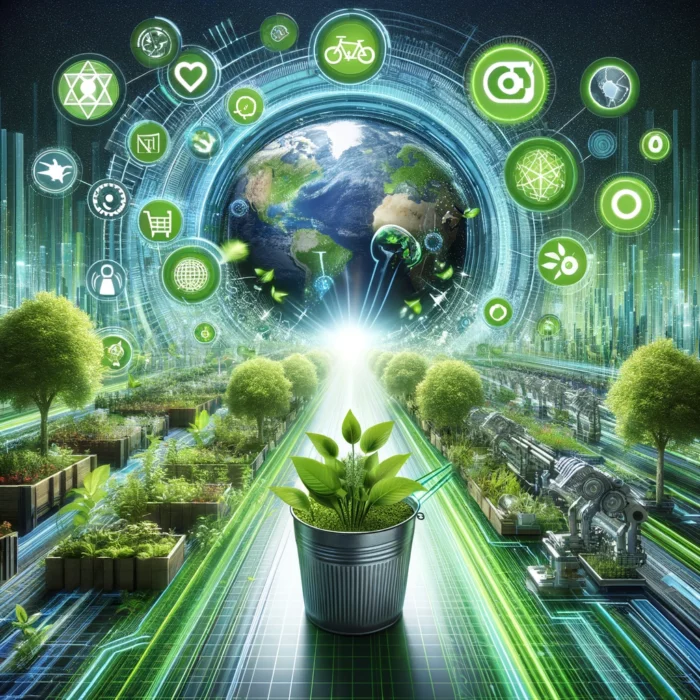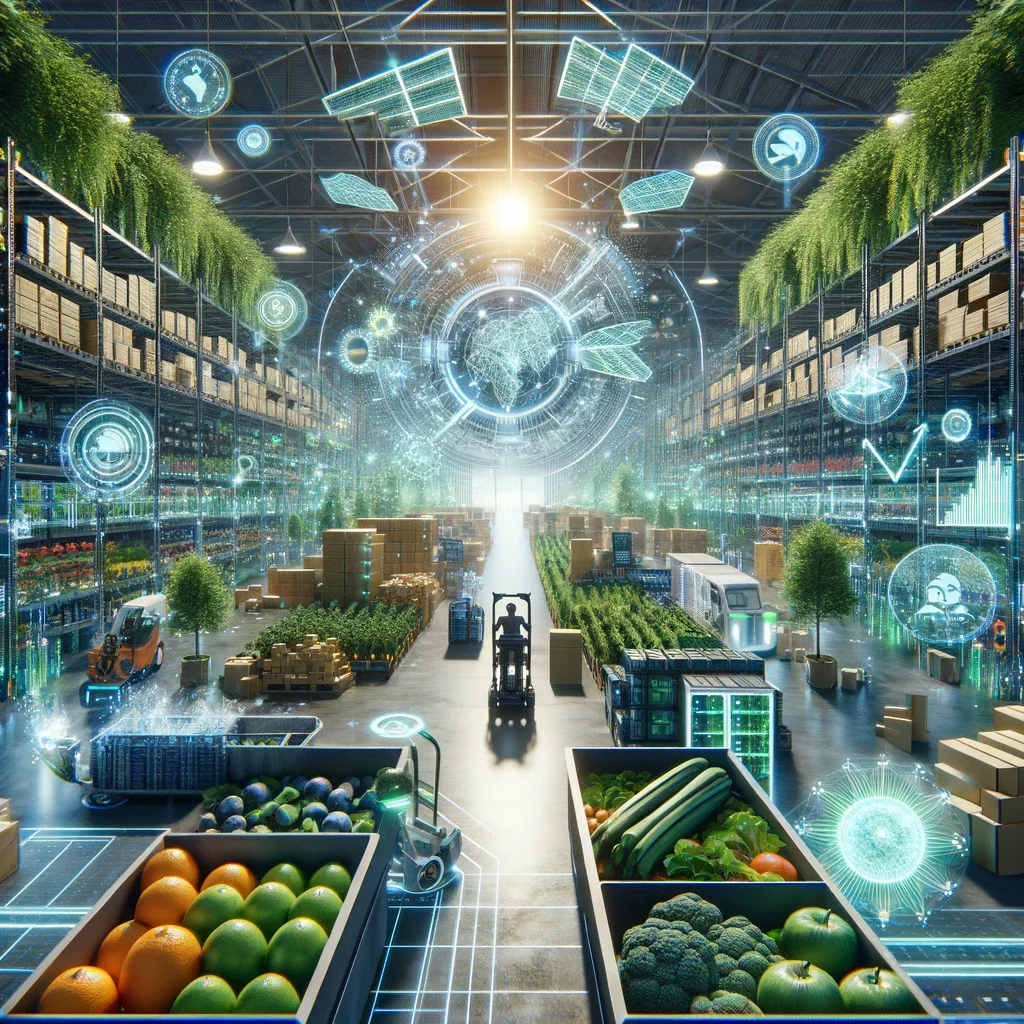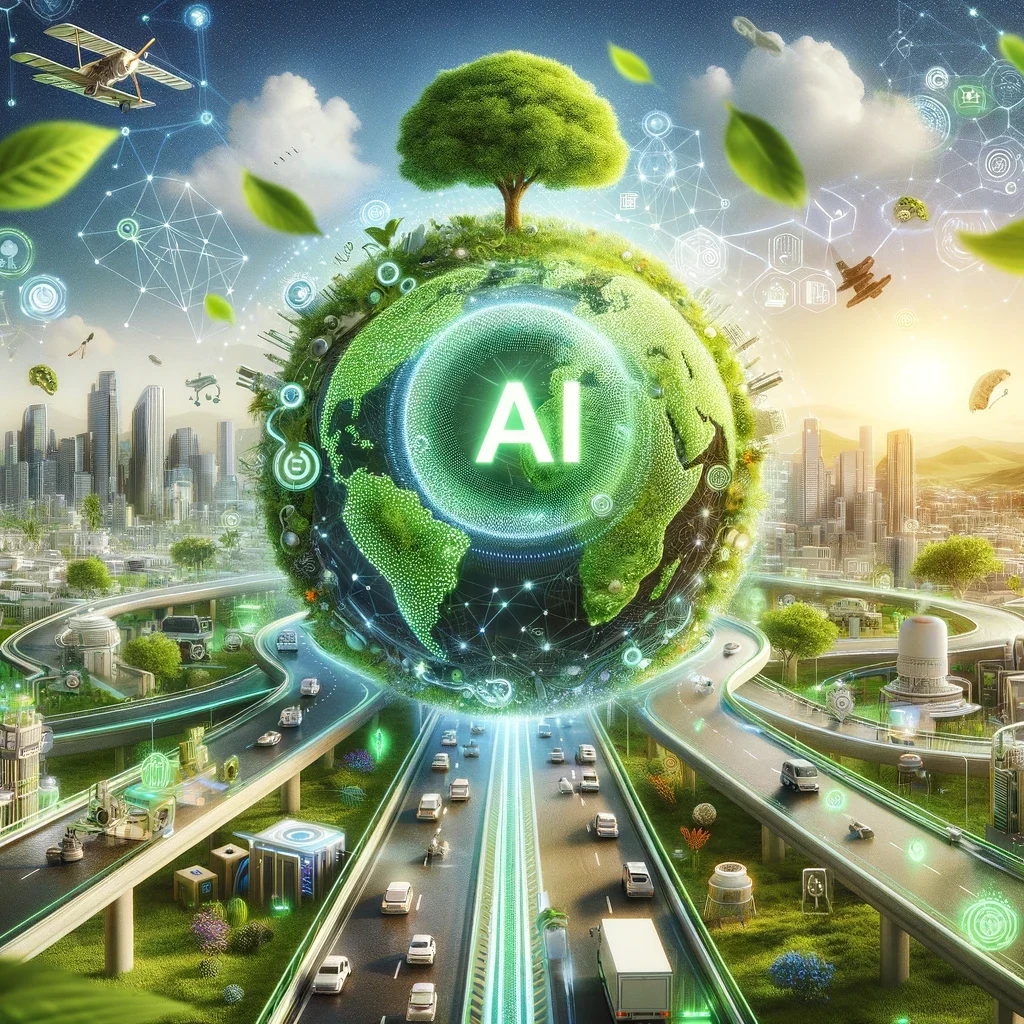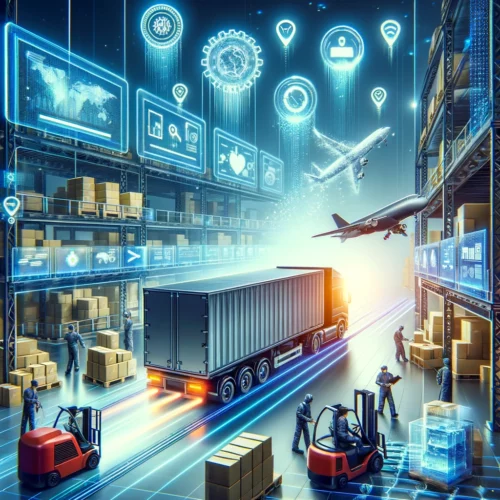
Sustainability Bites (Part 2): AI’s Role in Sustainable Practices for Wholesalers
This is the second part of our blog series on the importance of sustainability in 2024 and how retailers and wholesalers can benefit from sustainable practices.
There are low-hanging fruit improvements that businesses can do to reduce their footprint and become more sustainable, like reducing waste, limiting the use of plastics and optimising logistics. Digging deeper, however, reveals that everyday activities and established routines often go unquestioned, missing out on potential improvements through technological advancements.
There is so much noise and buzzwords being thrown around about technology and AI these days, the real question is: how can AI actually help me become more sustainable?
- Identify and Solve
In the wholesale sector, AI is revolutionizing customer support by enhancing service delivery, efficiency, and customer satisfaction. AI-driven chatbots like ChatGPT and virtual assistants offer 24/7 support, handling numerous inquiries at once, which reduces wait times and ensures personalized, accurate responses. These AI systems also analyze customer interactions to proactively address common issues and tailor interactions based on individual customer data, deepening client relationships and encouraging loyalty. Additionally, AI's role in gathering and analyzing feedback post-interaction helps businesses pinpoint areas for improvement, driving strategic enhancements in service quality. This comprehensive integration of AI in customer support systems signifies a transformative shift towards more responsive, personalized, and efficient customer service in the wholesale industry.
- Demand Planning
Furthermore, there are several AI tools which can help with demand forecasting. AI algorithms can analyze historical data, market trends, and external factors to enhance demand forecasting accuracy. This helps wholesalers optimize inventory levels, reducing food waste and minimizing the environmental impact of overproduction. Using this data, the AI can also teach you how to optimise your energy consumption and waste management (however this requires a lot of technical knowledge and investment to be feasible). Some examples include energy management tools like Schneider Electric EcoStruxure and C3.ai and waste analytics software like Rubicon and LeanPath.

- Operations
On the operations side, AI can be a real asset in automating mundane tasks and reducing common errors, such as those in ordering, which not only boosts efficiency but also supports sustainability. For example, automation solutions like Orderit's Auto-Pilot can significantly cut down on such errors, and consequently, increase customer satisfaction and productivity. This reduction in errors not only streamlines the workflow but also significantly lowers resource wastage, contributing to more sustainable business practices.
Furthermore, the precision and reliability of AI-driven operations instil a higher level of confidence among customers, directly influencing their satisfaction and loyalty. The impact of AI on productivity cannot be overstated. By handling repetitive tasks, AI frees up human resources to focus on more complex, value-added activities, fostering an environment of innovation and strategic thinking. This shift not only elevates the quality of services provided but also empowers employees, leading to a more motivated and engaged workforce. Additionally, the data-driven insights provided by AI systems enable businesses to identify bottlenecks and inefficiencies within their operations, allowing for targeted improvements that further enhance productivity and service quality.
Beyond the realm of AI, traditional approaches to sustainability shouldn't be overlooked. Those include:
- Sustainable & Ethical Sourcing: source products and packaging that follow ethical and sustainable practices such as environmentally friendly farming methods and fair labour practices.
- Certifications and Standards: Obtain certifications such as B Corp or other recognized sustainability standards. These certifications demonstrate a commitment to ethical and sustainable business practices.
- Community Engagement: Engage with local communities and support initiatives that address food insecurity or food poverty. Establish partnerships with organizations focused on sustainable agriculture and community well-being.

In summary, integrating AI into the traditional wholesaler stack represents a paradigm shift towards more intelligent, sustainable, and customer-centric business practices. It gives businesses a competitive edge by ensuring high efficiency, personalized service, and proactive problem-solving. This not only elevates the customer experience but also positions wholesalers as forward-thinking and customer-centric in a rapidly evolving market. As AI technology continues to advance, its potential to reshape customer support, demand forecasting and ordering in the wholesale industry becomes increasingly significant, promising a future where customer satisfaction is not just a goal but a guarantee.
We hope you found the second part of our blog series insightful and thought-provoking. If you have any topics that you would like to read more about, do let us know at [email protected].




